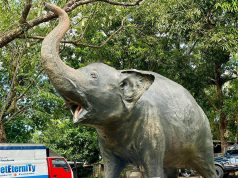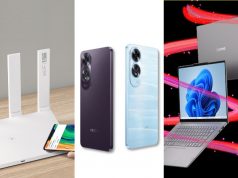TEMPE, ARIZONA/SAN FRANCISCO, CALIFORNIA — An Uber self-driving car hit and killed a woman crossing the street in Arizona, police said on Monday, marking the first fatality caused by an autonomous vehicle and a potential blow to the technology expected to transform transportation.
The ride services company said it was suspending North American tests of its self-driving vehicles, which are currently going on in Arizona, Pittsburgh and Toronto.
So-called robot cars, when fully developed by companies including Uber, Alphabet Inc and General Motors Co, are expected to drastically cut down on motor vehicle fatalities and create billion-dollar businesses. But Monday’s accident underscored the possible challenges ahead for the promising technology as the cars confront real-world situations involving real people.
U.S. lawmakers have been debating legislation that would speed introduction of self-driving cars.
“This tragic accident underscores why we need to be exceptionally cautious when testing and deploying autonomous vehicle technologies on public roads,” said Democratic Senator Edward Markey, a member of the transportation committee, in a statement.
Elaine Herzberg, 49, was walking her bicycle outside the crosswalk on a four-lane road in the Phoenix suburb of Tempe about 10 p.m. MST Sunday (0400 GMT Monday) when she was struck by the Uber vehicle traveling at about 40 miles per hour (65 km per hour), police said. The car was in autonomous mode with an operator behind the wheel.
Herzberg later died from her injuries in a hospital, police said.
“The pedestrian was outside of the crosswalk. As soon as she walked into the lane of traffic she was struck,” Tempe Police Sergeant Ronald Elcock told reporters at a news conference. He said he did not yet know how close Herzberg was to the vehicle when she stepped into the lane.
Elcock said he believed Herzberg may have been homeless.
Volvo, the Swedish car brand owned by China’s Geely, confirmed its XC90 SUV was involved in the crash but said the software controlling the car was not its own.
U.S. federal safety regulators were sending teams to investigate the crash. Canada’s transportation ministry in Ontario, where Uber conducts testing, also said it was reviewing the accident.
Wild West
Uber and Waymo on Friday urged Congress to pass sweeping legislation to speed the introduction of self-driving cars into the United States. Some congressional Democrats have blocked the legislation over safety concerns, and Monday’s fatality could hamper passage of the bill, congressional aides said Monday.
Safety advocates called for a national moratorium on all robot car testing on public roads.
“Arizona has been the wild west of robot car testing with virtually no regulations in place,” said Consumer Watchdog, a non-profit consumer advocacy group, in a statement. “That’s why Uber and Waymo test there. When there’s no sheriff in town, people get killed.”
Arizona has opened its arms to companies testing self-driving vehicles as a means to economic growth and jobs. Republican Governor Doug Ducey reached out to Uber in 2016 after California regulators cracked down on the company over its failure to obtain testing permits.
Self-driving cars being tested routinely get into fender-benders with other vehicles. Last week, a self-driving Uber crashed with another vehicle in Pittsburgh, local news reported. There were no injuries.
A year ago, Uber temporarily grounded its self-driving cars for a few days following a crash with another car in Tempe. The company has been the subject of a number of complaints about its autonomous vehicles, but the company has said the cars were being driven by a human driver at the time of the incidents.
Essential to Uber’s success
Uber has said its ability to build autonomous cars is essential to its success in the rapidly changing transportation industry. The company envisions a network of autonomous cars that would be summoned through the Uber app that would supplement – and eventually replace – human-driven cars.
Uber has logged 2 million self-driving miles (3.2 million km) through December. The company has more than 100 autonomous cars testing on the roads of the greater Phoenix area, the company’s prime testing ground due to the state’s loose regulations and hospitable weather. Rain, snow and ice are particularly challenging for autonomous cars. The company also tests in Pittsburgh and Toronto.
Concerns over the safety of autonomous vehicles flared after a July 2016 fatality involving a Tesla Inc automobile with a partially autonomous system that required human supervision. Safety regulators later determined Tesla was not at fault.
Uber has weathered a series of crises, including sexual harassment claims, using a tracking tool to avoid government officials, and a lawsuit brought by competitor Waymo alleging theft of self-driving trade secrets. Uber settled that lawsuit last month for $245 million.
That settlement was largely seen as a means for Uber to resume work on autonomous cars without the distraction of litigation, as it hustles to catch up with Waymo, widely seen as having the most advanced cars in the industry.









